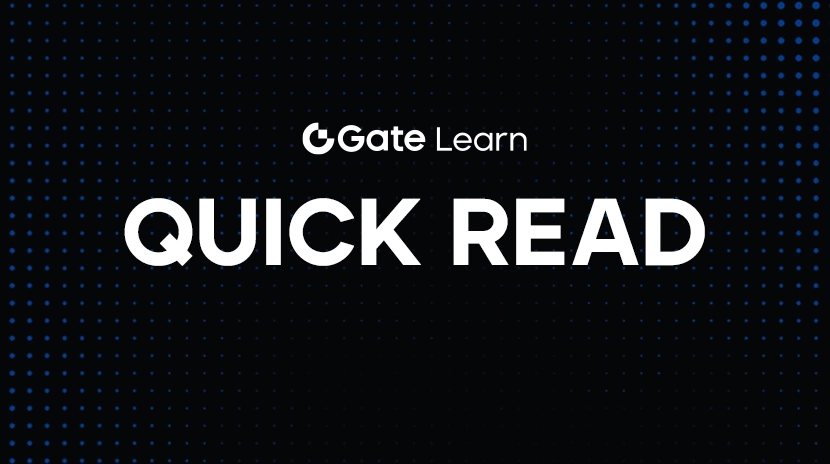Lisez TOUS sur Arkham dans un article
L'Origine d'Arkham
Arkham a été lancé en 2020, sa création étant étroitement liée à l'état actuel de l'industrie de la blockchain. Alors que la technologie de la blockchain était largement adoptée et que le marché des cryptomonnaies se développait rapidement, les problèmes liés à l'anonymat des transactions ont progressivement pris de l'importance. D'une part, les transactions anonymes rendaient difficile pour les régulateurs de retracer les flux de capitaux illicites, créant ainsi des opportunités pour le blanchiment d'argent, le financement du terrorisme et d'autres activités illégales. D'autre part, pour les investisseurs, le manque de visibilité sur les véritables identités et antécédents des contreparties accroissait les risques d'investissement.

Source de l'image :https://arkm.com/
Dans ce contexte, Arkham s'est lancé dans la construction d'une plateforme d'intelligence blockchain capable d'analyser systématiquement et de dé-anonymiser les transactions blockchain grâce à une technologie innovante. L'équipe du projet réunit des professionnels de différents domaines, apportant un soutien solide à la progression constante du projet. Miguel Morel, le fondateur et PDG d'Arkham, était auparavant le co-fondateur de Reserve Protocol. Il est actif dans l'espace des startups technologiques depuis de nombreuses années, accumulant une vaste expérience pratique en matière de planification stratégique, de gestion d'équipe et de levée de fonds.
Le projet a suscité l'intérêt d'investisseurs et d'institutions de premier plan, notamment les fondateurs de Palantir et OpenAI, ainsi que des capitalistes de risque comme Geoff Lewis de Bedrock et Tim Draper. Arkham a levé plus de 12 millions de dollars de financement, offrant une base financière solide pour le développement technique au stade précoce et la formation de l'équipe.

Source de l'image :https://arkm.com/
Le développement d'Arkham
Dans ses premiers stades, l'équipe d'Arkham s'est concentrée sur le développement des technologies de base. Un effort important a été déployé dans la création d'un moteur d'algorithmes d'IA appelé Ultra, une technologie clé qui relie les adresses blockchain aux entités du monde réel. En collectant, organisant et analysant de vastes quantités de données de transactions blockchain, le moteur Ultra a été entraîné à apprendre différents schémas de transactions et caractéristiques d'association d'adresses.
Après avoir terminé le développement technologique fondamental, Arkham a commencé à construire son produit de plateforme. Le composant de plateforme central, Profiler, a été lancé. Profiler fournit aux utilisateurs une vue complète de l'activité des entités ou adresses, y compris l'historique des transactions détaillé, les avoirs d'actifs, l'historique des soldes, l'analyse des profits/pertes, les enregistrements d'utilisation des échanges et les principales contreparties. Grâce à Profiler, les utilisateurs acquièrent une compréhension complète des entités derrière les activités de la blockchain, soutenant les décisions d'investissement et les évaluations des risques. Après la sortie du produit, l'équipe a invité des utilisateurs et partenaires professionnels sélectionnés pour des tests internes, recueilli des commentaires et effectué plusieurs rounds d'optimisation pour garantir la stabilité et la convivialité de la plateforme.
En juillet 2023, Arkham a atteint une étape importante : Binance a annoncé Arkham comme le 32e projet de la plateforme de lancement. En même temps, Arkham a lancé le tout premier marché de renseignements sur chaîne au monde - l'échange Arkham Intel - et a publié son jeton natif, ARKM. En tirant parti de la grande base d'utilisateurs et de l'influence sur le marché de Binance, Arkham a rapidement attiré une attention généralisée, rehaussant considérablement son profil.
Pour faire avancer le projet, Arkham a introduit de manière innovante le modèle "intel-to-earn" basé sur le concept "x-to-earn". Les utilisateurs peuvent gagner des jetons ARKM en soumettant des renseignements, en parrainant de nouveaux utilisateurs et en contribuant à l'écosystème. Cela incite à la participation communautaire dans la construction de l'écosystème du projet. La plateforme prend en charge la surveillance et l'analyse des données sur plusieurs grandes blockchains, dont Arbitrum, Avalanche, BNB Chain, Ethereum, Optimism, Polygon et Tron, étendant continuellement sa couverture commerciale.
Actuellement, Arkham a établi des partenariats avec de nombreuses institutions financières, des organismes de réglementation et des entreprises liées à la blockchain. Il fournit des services tels que la surveillance des risques de transaction on-chain et le suivi des transactions suspectes, construisant progressivement un écosystème dynamique impliquant des fournisseurs de données, des utilisateurs et des partenaires.
ARKM Tokenomics
ARKM est le jeton natif d'Arkham, émis sur Ethereum selon la norme ERC-20. Il est divisible, transférable et sous-tend le fonctionnement de l'écosystème du projet.

Lien de trading spot pour ARKM sur Gate: https://www.Gate.com/trade/ARKM_USDT
L'offre totale d'ARKM est de 1 milliard de jetons. Au 24 avril 2025, environ 405 millions de jetons sont en circulation, avec un prix de jeton de 0,5516 $ et une capitalisation boursière entièrement diluée d'environ 220 millions de dollars.

Source de l'image :https://etherscan.io/address/0x6e2a43be0b1d33b726f0ca3b8de60b3482b8b050#analytics
ARKM a trois principaux scénarios d'application :
(1) Droits d'accès aux données : Les utilisateurs ont besoin de jetons ARKM pour accéder à des analyses de dé-anonymisation plus approfondies et plus précises sur la plateforme Arkham. Les différents niveaux de données consomment des quantités de jetons différentes. Les forfaits de données de niveau supérieur offrent des informations plus détaillées sur les transactions liées aux entités et des évaluations de risques, répondant aux besoins des investisseurs professionnels et des institutions financières.
(2) Mécanisme d'incitation : Pour encourager les membres de la communauté à contribuer aux données et à aider à construire la plateforme, Arkham dispose d'un système d'incitation. Les contributeurs qui fournissent des pistes de données précieuses en chaîne ou qui aident à améliorer les algorithmes de déanonymisation peuvent gagner des jetons ARKM. Les utilisateurs qui participent activement à la gouvernance et offrent des retours constructifs peuvent également être récompensés, renforçant ainsi la cohésion communautaire et la gouvernance décentralisée.
(3) Fonction de mise en gage : les détenteurs d'ARKM peuvent mettre en jeu leurs jetons pour gagner des parts de revenus de la plateforme, provenant des frais de services de données, des collaborations de projets, et plus encore. La mise en jeu améliore également le score de réputation de la plateforme d'un utilisateur, lui donnant un accès prioritaire aux données et un poids plus important dans les évaluations de risques, favorisant la circulation des jetons et la stabilité de la valeur.
Fondation Technique d'Arkham
(1) Technologie de collecte et d'intégration de données
Arkham exploite un réseau de nœuds distribués pour collecter des données de transaction provenant de plusieurs blockchains, notamment Bitcoin, Ethereum et d'autres chaînes majeures ainsi que émergentes. En utilisant des technologies d'acquisition de données volumineuses, il capture des informations de transaction sur chaîne en temps réel telles que des adresses, des montants et des horodatages. Il intègre également des données supplémentaires hors chaîne, telles que des prix de marché et des sentiments sociaux, pour construire des ensembles de données multidimensionnels pour une analyse plus approfondie.
(2) Algorithmes de désanonymisation
Algorithme d'association d'adresses : Cet algorithme identifie des clusters d'adresses liées en analysant les flux de fonds, la fréquence des transactions et les montants transférés. Par exemple, si plusieurs adresses envoient fréquemment des fonds à la même destination avec des schémas réguliers, l'algorithme peut déterminer qu'elles appartiennent à la même entité.
Algorithme d'analyse de modèle comportemental : Chaque entité a un modèle comportemental unique on-chain. En apprenant le comportement de trading typique tel que la distribution temporelle et les choix de contrepartie, l'algorithme détecte les anomalies. S'il identifie des modèles inhabituels, il effectue une analyse plus approfondie pour déduire l'identité de l'entité de trading, améliorant ainsi la précision de la dé-anonymisation.
(3) Protection de la vie privée et technologie de sécurité
Bien qu'Arkham se concentre sur la déanonymisation, il met fortement l'accent sur la protection de la vie privée des utilisateurs. Les données sensibles sont cryptées lors du stockage et de la transmission. L'accès est étroitement contrôlé, seuls les utilisateurs autorisés peuvent accéder à des données spécifiques, et tout accès est enregistré et audité pour prévenir les fuites ou les abus. Cela garantit qu'en réalisant la déanonymisation, Arkham respecte toujours les droits des utilisateurs et la sécurité des données.
Perspective pour Arkham
Alors que la technologie blockchain évolue et que les exigences réglementaires augmentent, Arkham - avec sa technologie de dé-anonymisation de pointe, son écosystème innovant "intel-to-earn" et une équipe professionnelle solide - est bien positionné pour prospérer dans l'analyse des données de la blockchain. On s'attend à ce qu'il améliore continuellement ses capacités de suivi et d'analyse tout en élargissant sa collaboration avec les institutions financières et les régulateurs.
En affinant l'économie des jetons ARKM et en incitant davantage d'utilisateurs à s'engager dans le développement de l'écosystème, Arkham pourrait devenir une plateforme de référence pour la transparence des transactions blockchain et le contrôle des risques. Il pourrait jouer un rôle crucial dans le maintien de l'ordre sur le marché des cryptomonnaies et favoriser la conformité réglementaire, injectant ainsi un fort élan dans le développement sain de l'industrie de la blockchain.
Articles Connexes

Pi Network (PI) au taux de change du franc CFA d'Afrique de l'Ouest (XOF) : Valeur actuelle et guide de conversion

Comment vendre la pièce PI : Guide du débutant

Valeur de Pi Crypto : Lancement sur Mainnet le 20 février 2025 & Prédictions de prix futures

Qu'est-ce que FAFO : jeton MEME dérivé de la plateforme sociale de Trump

Est-ce que XRP est un bon investissement? Un guide complet sur son potentiel


